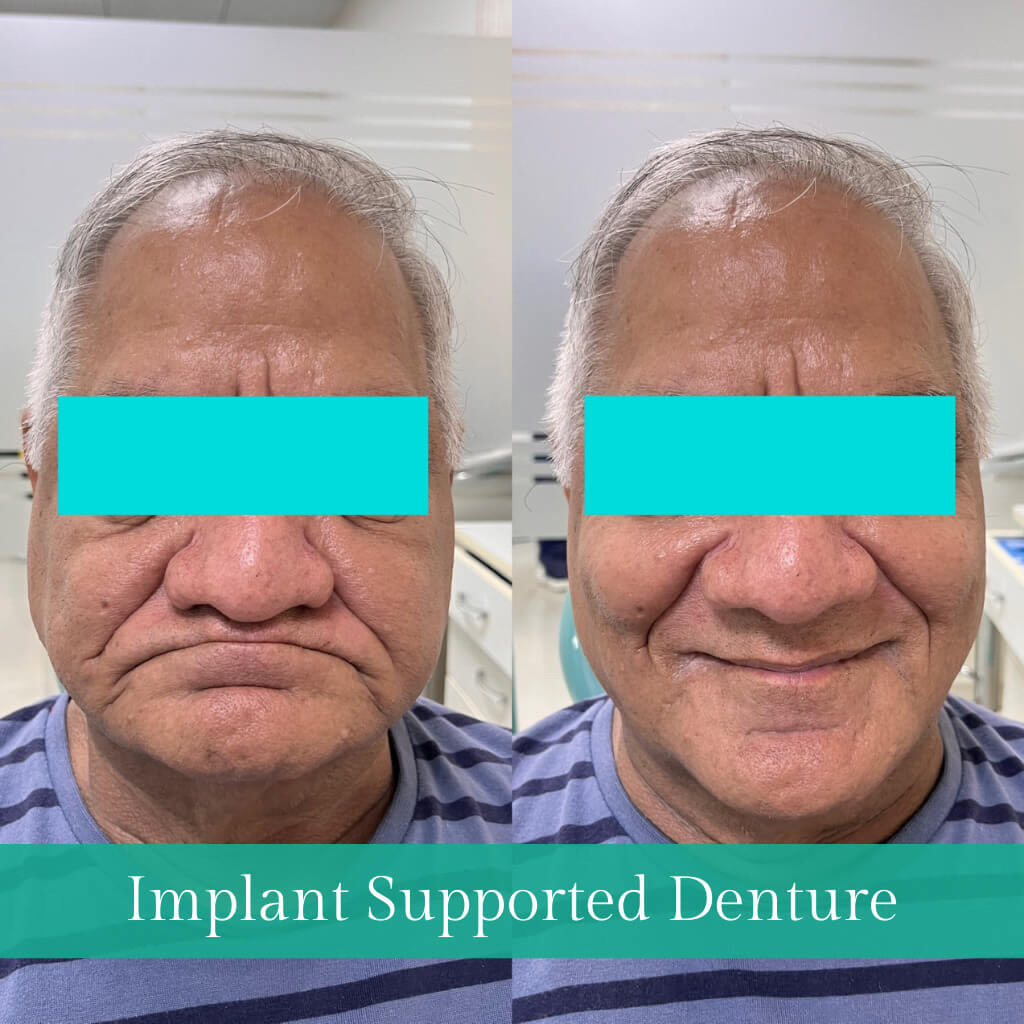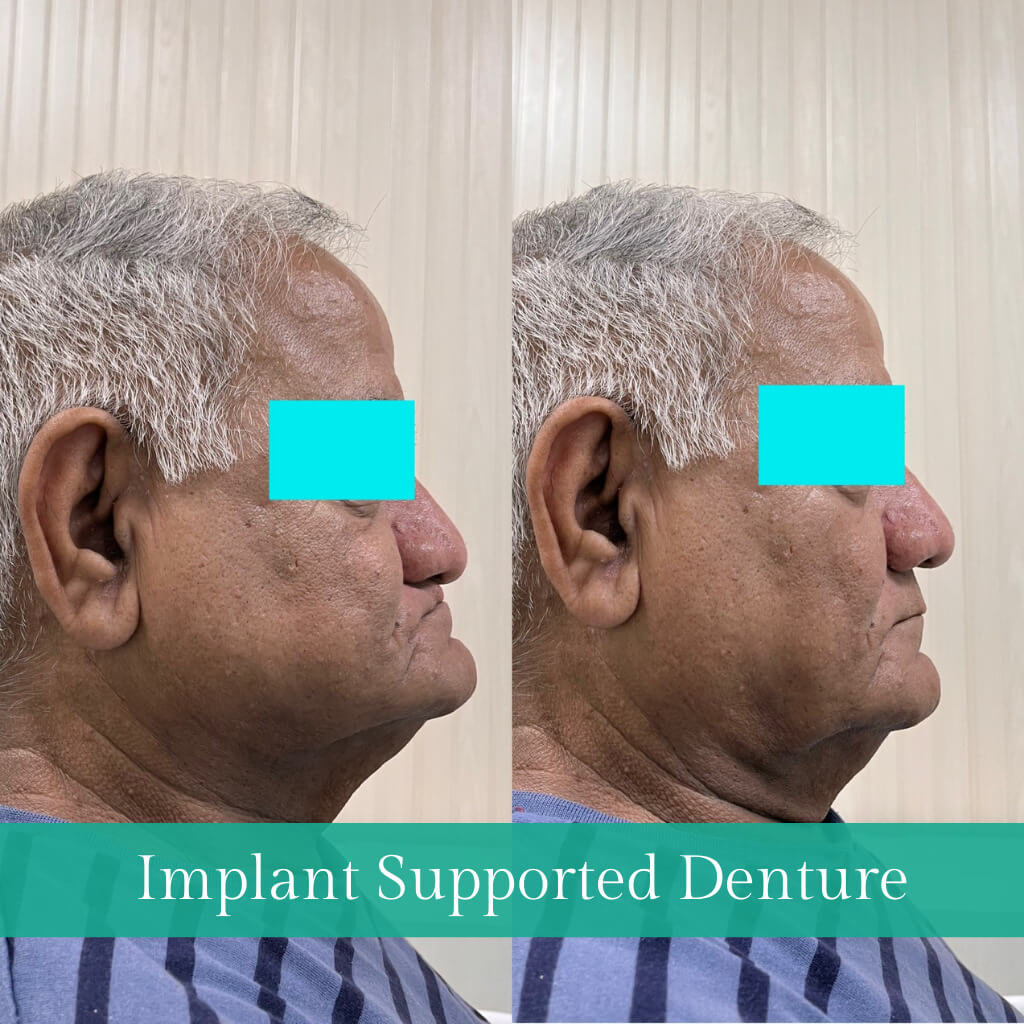Dentures are prosthetic dental replacements for missing teeth, usually crafted from acrylic resin with potential metal reinforcement for additional stability.
Types of Dentures
Partial Dentures
Partial dentures are utilised when an individual has a small number of teeth missing in either their upper or lower jaw. These specialised dentures are crafted to occupy the spaces where the teeth are absent, and they are secured in position using clasps that connect to the existing natural teeth.
Complete Dentures
Complete dentures are utilised when all teeth are absent in the upper or lower jaw. These dentures provide a complete set of teeth and are held in place by suction against the gums and sometimes with the assistance of dental adhesive.
When does one need Dentures?
- Multiple Teeth Missing If you've lost several teeth, it can complicate eating and speaking and impact your appearance. Dentures provide a solution by filling these gaps and restoring oral functionality and aesthetics.
- Decayed or Damaged Remaining Teeth When your existing teeth are extensively decayed, damaged, or unstable, extraction may be necessary. Dentures step in to replace these teeth, averting further harm to your oral health.
- Difficulty Eating or Speaking Tooth loss can hinder your ability to chew properly and articulate clearly. Dentures rescue you, enabling you to enjoy a diverse diet and communicate effectively.
- Jawbone Resorption Missing teeth can trigger the gradual shrinking and weakening of the jawbone, leading to facial sagging and potential additional tooth loss. Dentures play a role in providing support to the jawbone, helping to prevent this bone resorption.
- Periodontitis Periodontitis, a severe gum disease, can result in tooth loss and jawbone deterioration. This is a strong indicator for considering complete dentures. Dentures can reinstate both the form and function of your mouth, addressing the effects of periodontitis.
Benefits of Dentures
- Improved Appearance Restores a natural-looking smile, enhancing facial aesthetics.
- Restored Chewing Function Allows better chewing ability, expanding food choices.
- Enhanced Speech Helps in articulating words more clearly.
- Support for Facial Structure Prevents facial sagging, maintaining a youthful appearance.
- Affordable Tooth Replacement Cost-effective option for many individuals.
Aftercare tips
- Daily Cleaning Clean your dentures daily with a soft-bristle toothbrush and mild denture cleaner to remove food particles, stains, and plaque.
- Oral Hygiene To maintain optimal oral hygiene, make sure to gently brush your tongue, gums, and the roof of your mouth every day using a soft toothbrush.
- Remove Dentures at Night Give your gums a break by removing your dentures at night. Soak them in water or a denture-cleaning solution while you sleep.
- Regular Dental Check-ups Schedule regular appointments with your dentist for adjustments, professional cleaning, and to ensure your dentures fit well.
- Handle with Care Be very gentle when handling your dentures. Avoid bending the plastic or damaging the clasps. When cleaning them, use a towel or a basin of water to prevent accidental drops.
Implant-supported dentures
In case of severely resorbed or deficient bone, sometimes dentures get unstable on functional movements such as chewing or opening the mouth too wide. In such cases, placement of 2-4 implants can provide the necessary anchorage and stabilise the dentures during functional movements.





